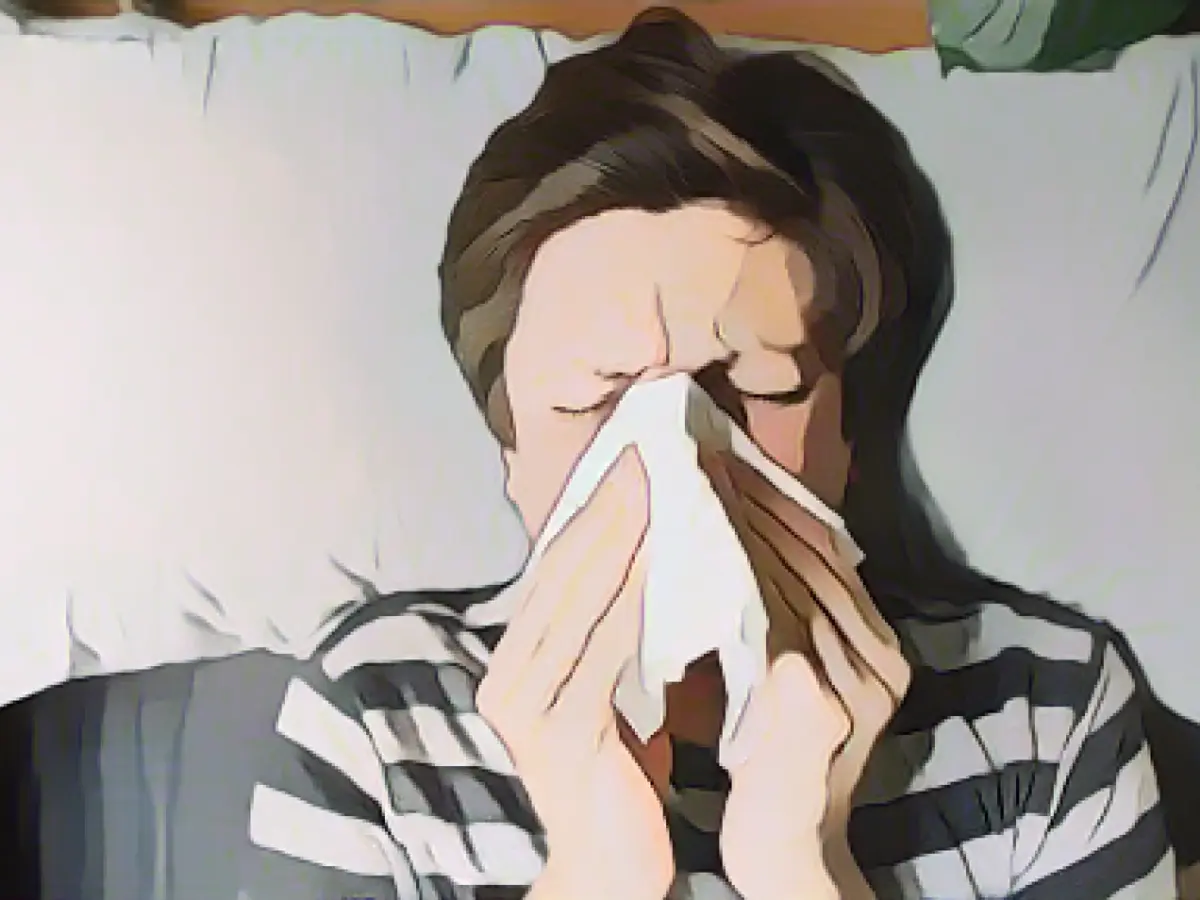Title: Respiratory Illnesses on the Rise Before Holidays: Corona, Colds, and Flu on the Upswing
The approach to the festive season in Germany is marked by an ongoing increase in cases of acute respiratory infections. The Robert Koch Institute (RKI) reports a rise in Corona, colds, and flu, with around 7.9 million infections recorded nationwide for the week ending December 10 (previously reported: 7.1 million).
Post-Corona dominance, the RKI has acknowledged the commencement of the RSV wave (RSV stands for respiratory syncytial virus infections). Simultaneously, flu cases are surging significantly.
Influenza-triggered epidemic wave not yet begun
Despite the escalating influenza cases, the RKI definition asserts that the flu outbreak initiated by influenza viruses has yet to occur. Influenzal instances predominantly affect school-age children and young adults, as per the report.
The reported national cases of laboratory-confirmed influenza currently number around 1,400 for the preceding week - more than doubled compared to the previous week. Coronavirus cases, however, are more frequently detected, with approximately 26,850 cases reported for the last week.
Considering the reporting figures, both diseases' totals should be viewed as merely the surface of the iceberg.
Health measures during coronavirus pandemic: Boon or bust for immune system?
The RKI estimates that approximately 9,500 cases of acute respiratory illnesses per 100,000 inhabitants were reported for last week (a week ago, approximately 8,500). This rate was record-high a year ago at this time, while in some previous years, it was lower - most likely partly due to coronavirus measures in place.
However, experts caution that the current numbers could be attributed to a slight catch-up effect, where people may be encountering pathogens they didn't interface with during the pandemic years, or less frequently.
"Of course, you have to keep in mind that we now have one more pathogen for respiratory diseases," Dortmund immunologist Carsten Watzl pointed out to the German Press Agency. It's no surprise that the overall incidence is higher due to the relatively high percentage of Sars-CoV-2 in all respiratory infections at the moment.
To varying degrees, the population might also be more attentive. "It can be assumed that the population is more aware," Bremen epidemiologist Hajo Zeeb asserted. This heightened awareness may contribute to an increased tendency towards medical consultations due to respiratory disorders, which might be mirrored in statistics and statistics on absenteeism.
Watzl dismisses claims that the hygiene measures during the pandemic weaken the immune system. "I don't need to train my immune system with infections to be active in the first place." The observation that infections previously avoided are now being caught up with does not imply that the immune system has weakened.
Caution still advised despite basic immunity
Despite the population's basic immunity through vaccinations and prior infections, severe coronavirus cases are not entirely a thing of the past. A corona infection can still make you quite unwell, as Charité expert Leif Sander recently stated on Rundfunk Berlin-Brandenburg (RBB). "Even the kind of manifestations we saw a few years ago." Reasons may include a prolonged time since vaccination or ineffective immunization. Thus, a degree of caution seems advisable: voluntarily wearing a mask in a very crowded subway, for instance, is sensible.
Lauterbach's warnings raise a few eyebrows
Lauterbach's recent coronavirus warnings were met with criticism from Andreas Gassen, head of the National Association of Statutory Health Insurance Physicians. "I think the urgency in his warnings and appeals is excessive. After all, we no longer have a pandemic situation," Gassen told the Rheinische Post newspaper. In the past, people didn't advise everyone to wear masks and avoid indoor Christmas parties because of colds or flu.
Gassen emphasized the importance of vaccinations for old people and risk groups, including inoculations against influenza and coronavirus, rather than imposing unnecessary public health restrictions.
As the New Year approaches, scientific experts advise close monitoring of the situation, as seasons often display varying trends in respiratory disorders. And one should never forget about the persistence of pathogens like coronavirus and influenza.
Footnotes: [1] The Robert Koch Institute (RKI) does not provide detailed information on the evolution of respiratory illnesses especially during pre-Christmas season in 2022. To access specific RKI reports or health surveillance data from that time, you would need to explore official RKI releases or other reliable sources for the most current information.






